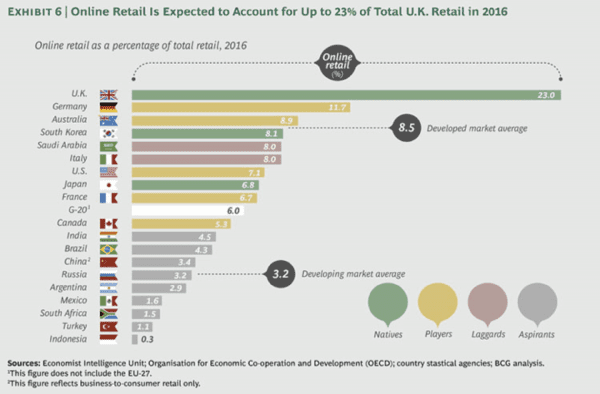Making the case for a winning localisation strategy
In my experience, many companies give localisation very little thought until growth begins to stagnate and they are forced to look at additional revenue from international markets. So what happens when you have exhausted the potential in your domestic market? Organisations are generally faced with two choices:
1. Develop new products or services to get more traction in your own back yard
2. Sell your existing products or services on a global scale
Since developing innovative products and services can be an expensive, high-risk strategy, it is not surprising that companies will opt to tap into international markets as a preference. What may surprise you, however, is that very few have any sort of strategy around their localisation programs and so they eventually lose out to savvy competitors who were quicker at adapting to selling to a global audience.
Making the business case for localisation
Convincing Finance Directors to allocate budget to support your localisation program can be a tedious and frustrating endeavour. You should prepare yourself for comments like “everybody speaks English these days so why bother with the extra expense?” In actual fact, it is estimated that only 28% of online consumers speak English while the biggest online consumer nations outside the UK are South Korea, China and Japan where English is not as widely spoken as you might think. This affects both visibility in the search engines and conversion as you try to engage searchers and visitors with your brand. Why would you not want to tap into those markets if you can fulfil sales and support locally?
The scale of the opportunity is also suggested by the Boston Consulting Group (BCG) who recently published a report estimating that there will be 3 billion Internet users globally (almost half the world’s population) and the Internet economy will reach $4.2 trillion in the G-20 economies by 2016 (and that’s excluding B2B):

This research tells us two things which suggest the potential of international markets and the need to localise:
1. There Are Fewer Barriers to Entry: The web has undoubtedly lowered the barriers to market entry for eRetailers and service providers alike by taking away the necessity of having a physical presence. Before the emergence of this phenomena, international business was the prerogative of BIG business.
2. Most People Don’t Speak English: The majority of growth markets outlined in this report would not claim English as their primary language so in order for you to achieve the market penetration you desire, you are going to have to ‘localise’ your message.
Consider that while running a localisation program does not come cheap, it is a lot more cost effective to establish an online presence than a physical presence and returns can be quick and rewarding.
We have recently helped some major UK retailers to internationalise their brand for the first time and the results have been very encouraging. In one case, the client had recouped their CapEx investment in localising their eCommerce site into German within the first few days of the site going live. Compare that to the time it would take to break even on building a new store in Germany and you can see why this approach is really a no brainer and a low risk option at that.
While this example certainly drives home the point for retailers, we have heard similar reports from customers who have localised their brochure sites and printed collateral for the first time too. The consistent message is compelling – localising your message wins sales!
In the next article in a short series on localisation I'll review the different options and their pros and cons. Then we'll look at the success factors that we've found can make or break your localisation efforts.

Thanks to
Karin Nielsen for sharing their advice and opinions in this post. Karin Nielsen is Commercial Director at
Codex Global Translation Services. She has 7 years’ experience in localisation solutions and technology and was previously on the board of a global top 10 language services company as EU Sales Director. You can connect with Karin on
LinkedIn.



 Thanks to
Thanks to 


